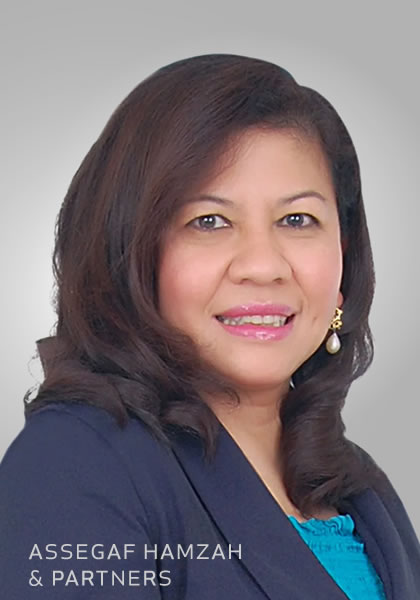A Brief Summary of Indonesia’s New Regulations on Imports

In the past several months, the Minister of Trade (“Ministry”) has issued two new regulations on imports. First, in December 2023, the Ministry enacted Ministry of Trade Regulation No. 36 of 2023 on Import Policies and Provisions (“Regulation 36/2023”), which came into effect on 10 March 2024. Regulation 36/2023 replaces Ministry of Trade Regulation No. 20 of 2021 and its amendment, Ministry of Trade Regulation No. 25 of 2022. Then, in March 2024, the Ministry issued Ministry of Trade Regulation No. 3 of 2024 on Amendment of Import Policies and Provisions (“Regulation 3/2024”). Among others, Regulation 3/2024 amended the provisions on import permits and import arrangements of plastic raw materials, chemicals, aircraft spare parts, and horticultural products.
Both Regulations are aimed to enhance the supervision of goods entering Indonesia by restricting the importation of specific goods to maintain the stability of domestic trade. In Regulation 3/2024, the Ministry expands the range of used goods eligible for importation, updates the requirement for obtaining import permit, and adds classification of goods that are subject to import restrictions. Additionally, these regulations also tighten the entry of goods carried by passengers.
We take a closer look at some of the changes introduced by Regulation 36/2023 and Regulation 3/2024 below.
Capital Goods in Used Condition
Regulation 36/2023 expands the range of used goods eligible for importation. Previously, used goods that can be imported into Indonesia are goods that cannot be sourced domestically and goods intended for use in recovery and reconstruction due to natural disasters. Now, a business entity can also import residuals, scrap, or waste that are not included in the hazardous and toxic waste category for production purposes and goods imported for specific purposes.
By expanding the range of used goods eligible for importation, it significantly eased the process for importers looking to acquire used goods for various business operations, thereby supporting their operations.
Import Permit for Iron or Steel Products and Textile Products
An import permit is issued based on the commodity balance stipulated by the Coordinating Minister for Economic Affairs, which includes the consumption and production of certain commodities within specific periods to fulfil domestic needs. However, if the commodity balance is not yet defined, issuance of import permits may rely on other required data. Regulation 3/2024 amends the types of data as detailed below:
| Goods | Required Data | |
| MOT Regulation No. 25 of 2022 | MOT Regulation No. 3 of 2024 | |
| Iron or steel, alloy steel, and its derivative products | To import alloy steel, a party must provide:
|
To import alloy steel, a party must provide:
|
| Textile products | To import textile products, a party must provide:
|
To import textile products, a party must provide:
|
Notes: API-P and API-U are importer identification numbers that depend on the importers’ business. A producer importer must hold an API-P, while a trading importer must hold an API-U.
All imported goods have their own classifications called the Harmonised System Code or HS Code, which are regulated under the Indonesian Customs Tariff Book 2022 (Buku Tariff Kepabeanan Indonesia). Aligned with the additional goods classifications in the Indonesian Customs Tariff Book 2022, Regulation 3/2024 also added various goods classifications that are subject to import restrictions. This will affect import procedures and business entities should check for the newly added goods classifications to determine whether they will be subject to import restrictions.
Goods Carried by Passengers
In a controversial move, the Ministry amended the provisions on the prohibition and restriction for importing goods that are not intended for business, including goods carried by passengers entering Indonesia. These prohibitions and restrictions are set out in Appendix IV of Regulation 3/2024:
| Category | Thresholds for Goods Carried by Passengers | |
| MOT Regulation No. 25 of 2022 | MOT Regulation No. 3 of 2024 | |
| Cellular phone, laptop, and tablet | Max. 2 units per person | Max. 2 units per person within one year |
| Food and beverages | Max. FOB (FOB stands for Free on Board or the value of good at purchase) USD1,500 per person | Max. FOB USD 1,500 per person |
| Cosmetics | Max. FOB USD1,500 per person | Max. 20 pieces per person |
| Bag | – | Max. 2 pieces per person |
| Footwear | Max. 2 pieces/goods | Max. 2 pairs per person |
| Electronics | Max. 2 pieces/goods | Max. 5 units and with value max. FOB USD1,500 per person |
| Other finished textile goods (e.g. blanket, curtain, packing bags and others) | Max. FOB USD1,500 per person | Max. 5 pieces and with value max. FOB USD1,500 per person |
| Toys | – | Max. FOB USD 1,500 per person |
However, the Ministry recently announced that it will evaluate the provisions on goods carried by passengers under MOT Regulation 36/2023 as amended by Regulation 3/2024, with a potential revision in the near future. Therefore, the application of the above thresholds will be on hold until further notice.
Key Takeaways
Business entities, especially those conducting importation regularly, must pay close attention to both Regulations to ensure compliance. Moreover, because the issuance of an import permit is based on the availability of quota in the commodity balance data, business entities should create a plan and strategy in applying for an import permit to secure the quota according to their needs. Lastly, business entities must monitor the HS Codes of goods due to the changes in the HS Codes.
For the import permit of iron, steel, and textile products, it will remain valid for a maximum of one year, regardless of whether the commodity balance has been defined or not and it applies to API-P and API-U. Therefore, it is essential to note that if a business entity’s import permit for iron or steel was issued in May 2024, it will only be valid until December 2024, instead of April 2025.
If you have any queries on the above, please feel free to contact our team members below who will be happy to assist.
Muhammad Faiz Lubis, Dealita Tiara Oktaviani and Debora Eunike Munaiseche also contributed to this alert.


